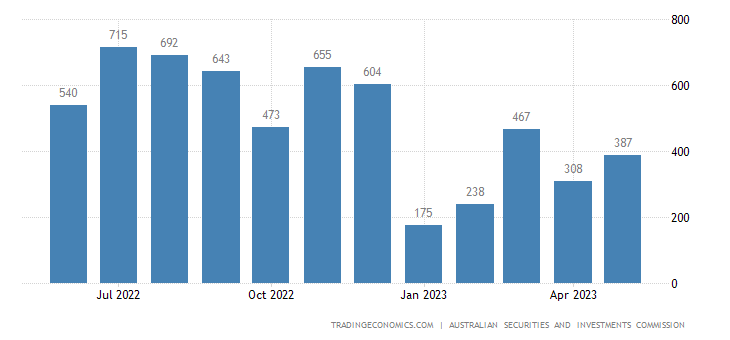UN investigators leave Syria as Obama plans strike over chemical weapons
- AFP
- September 01, 2013
Barack Obama says war weariness cannot excuse the world from its responsibility to stop violence in Syria.
Barack Obama meets with his national security staff to discuss the situation in Syria, in the Situation Room of the White House. Source: AP
UN experts investigating a suspected chemical weapons attack have left Syria, opening a window into a possible US strike after Washington concluded the Damascus regime unleashed poison gas on civilians.
The 13 inspectors, led by Ake Sellstrom, left their Damascus hotel before dawn and crossed early morning into Lebanon at the town of Chtaura in a convoy of vehicles.
They are due to report back immediately to UN chief Ban Ki-moon, who has appealed to the West to allow time for their findings to be assessed.
Their departure heightened expectations of a US-led military strike on the Syrian regime, after Barack Obama gave his clearest indication yet that an attack was imminent.
“We cannot accept a world where women and children and innocent civilians are gassed on a terrible scale,” Obama said at the White House.
“We are looking at the possibility of a limited, narrow act.”
While noting that he had made no “final decision” on striking Syria to punish Bashar al-Assad’s regime, he gave his clearest indication yet that the United States would indeed act.
His remarks came after the United States released an intelligence report expressing “high confidence” that the regime had launched
a chemical onslaught in the suburbs of Damascus last week that killed 1429 people, including at least 426 children.
“This kind of attack is a challenge to the world,” Obama said.
“I have said before, and I meant what I said, that the world has an obligation to make sure we maintain the norm against the use of chemical weapons.”
He slammed the “incapacity” of the UN Security Council to act and said his administration and the military were looking at a “wide range of options”
but had ruled out “boots on the ground” or a “long-term campaign.”
France gave its backing to the US plans, but British MPs voted against any involvement in military action and other close allies, including Germany, said they would not sign up.
Russian President Vladimir Putin meantime dismissed claims that the Syrian regime has used chemical weapons, demanding that the United States provide proof rather than taking rash action.
Speaking after the United States released an intelligence report, Putin rejected US use of intercepts of Syrian communications as evidence,
saying that they could not be used to take “fundamental decisions” like using military force on Syria.
And he rubbished the notion that the Syrian army used chemical weapons, saying to do so would defy “common sense.”
“Syrian government troops are on the offensive and have surrounded the opposition in several regions,” he said in the Far Eastern city of Vladivostok.
“In these conditions, to give a trump card to those who are calling for a military intervention is utter nonsense.”
Russia, Syria’s vocal and powerful ally, has vowed to block any action against the regime of Syria’s Bashar al-Assad in the UN Security Council, where it is a permanent member.
Putin said he was sure the alleged attack was “nothing but a provocation” by those who want to drag other countries into the Syrian conflict, and demanded proof this was not the case.
US Secretary of State John Kerry cited “multiple streams of intelligence” indicating that the Syrian government had carried out the attack and that Assad himself is the
“ultimate decision maker” for the country’s chemical weapons program.
Kerry said failure to act would not only erode the nearly century-old norm against the use of chemical weapons, but would embolden Syrian allies Iran and Hezbollah.
But, faced with an impasse at the Security Council and the British parliament’s shock vote, the United States has been forced to look elsewhere for international partners.
While Germany and Canada ruled out joining any military strikes, French President Francois Hollande, whose country was a strident opponent of the US-led war on Iraq,
said the British decision would not affect his government’s stance.
“France wants firm and proportionate action against the Damascus regime,” Hollande said in an interview with Le Monde newspaper.
US Defense Secretary Chuck Hagel said the White House was still seeking an “international coalition that will act together” against Assad’s regime.
The British government’s defeat in parliament came after the failure of an 11th-hour effort by British diplomats to win UN backing for action at a meeting of Security Council permanent members.
Gruesome pictures of some of the reported victims of the attacks, including children, have shocked the world and piled on the pressure for a response that could draw a reluctant West into the vicious Syrian civil war.
But Russia and Iran, and even some US allies have warned against any intervention, saying it risked sparking a wider conflict.
Divisions over Syria have further chilled the frosty relations between Washington and Moscow ahead of the G20 summit next week in Saint Petersburg,
where pointedly there will be no face-to-face talks between Obama and Russian President Vladimir Putin.
Earlier in the week, reports had suggested a Western strike was imminent, but questions had been raised about the quality of the intelligence linking Assad to the gas attack.
Syria’s Foreign Minister Walid Muallem reportedly told the UN chief that Damascus would reject any “partial” conclusions about the attack before full analyses are undertaken.
The military buildup was continuing in the region, with US warships armed with scores of cruise missiles converging on the eastern Mediterranean.
In Damascus the mood was heavy with fear and security forces were making preparations for possible air bombardments, pulling soldiers back from potential targets.
More than 100,000 people have died since the conflict erupted in March 2011 and two million have become refugees, half of them children, according to the United Nations.
Some commentators have questioned the wisdom of Obama dragging the United States into another conflict after the wars in Iraq and Afghanistan –
particularly as al-Qa’ida militants are among the rebels fighting the Assad regime.
Some members of the US Congress voiced support for limited surgical missile strikes, while urging transparency from the administration.
But an opinion poll released today said half of all Americans believe Obama should not intervene, and Italian Foreign Minister Emma Bonino said military strikes risked escalating the conflict into a “global conflagration”.
Syria’s main arms supplier Russia has blocked all attempts to toughen UN sanctions against Damascus or to authorise outside force to punish or unseat the regime.
Putin’s chief foreign policy aide Uri Ushakov said any military action that bypasses the Security Council “will deal a serious blow to the entire system of world order.”
Assad, whose regime strongly denies using chemical weapons and instead blames “terrorist” rebels, remains defiant.
“Syria will defend itself in the face of any aggression,” he said, vowing “victory” for his people.
Syria’s jittery neighbors have also taken steps to boost security, while several airlines have changed their times for flights into Beirut, with Lebanon always vulnerable to spillover of the conflict in its larger neighbor.





































































Leave a comment
Comments 0